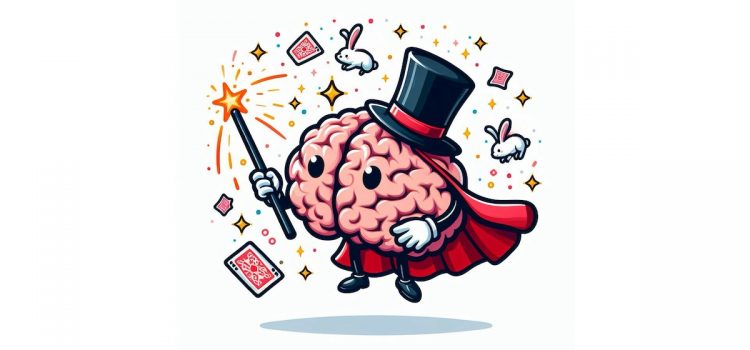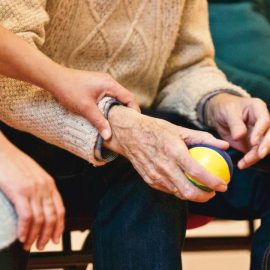
How does the placebo effect work? Are placebos limited to pharmaceuticals? How susceptible are you to them?
The placebo effect is a common phenomenon in which the mind and body behave counter to reason. Rory Sutherland says you can use it in life and work. He looks at how the placebo effect works, the characteristics of effective placebos, and how the effect manifests in areas of life beyond medicine.
Read more to learn about the power of the placebo effect and how to use it to an advantage.
The Power of the Placebo Effect
Sutherland says that, in any situation involving human beings, it’s essential to acknowledge and tap into the instinctive, unconscious reasoning behind how people make decisions. Whether you’re selling a product, planning a business strategy, or trying to convince people to eat healthier food, the “magic” of unreason can be far more persuasive than logical arguments and facts. One so-called “irrational” mental processes is the placebo effect, in which the mind can trick the body. For example, your body reacts to what you think is a drug, even if it’s just a harmless sugar pill.
Though using placebos can seem dishonest to the rational mind (aside from their role in medical testing), Sutherland argues that leveraging the power of the placebo effect is a legitimate way we can hack our bodies and minds to achieve various beneficial outcomes—whether that’s improved health or a better mental state.
Sutherland suggests an evolutionary explanation for the placebo effect. Our bodies evolved to live in harsher conditions than most of us experience in the modern world. For that reason, it didn’t pay to be sick—the body’s immune response to illness temporarily weakens it, reducing short-term survival in the wild. According to this theory, our immune system only gives its full effort if we perceive that it’s safe to do so. A placebo works by telling our body that it’s safe to go into healing mode, and that doing so will likely be successful instead of leaving us vulnerable to predators.
| The Science of Placebos Research on the placebo effect isn’t settled, as there are other plausible explanations than the one that Sutherland offers. One is simple coincidence—some health conditions naturally fade with or without medication at all. Likewise, taking a placebo you believe will make you healthier may spur you to adopt other healthy behaviors, such as exercise and making better food choices, that can promote a natural recovery. A placebo may lead you to reframe your perception of your symptoms so that they don’t seem as severe. Changing your perceptions can likewise reduce anxiety and release the body’s natural endorphins, all of which contribute to making you feel better. The opposite of a placebo—when someone is told a drug will cause harm, whether or not that’s the case—is called the nocebo effect, which can produce a measurable reduction in health and negate the positive effects of beneficial medication. In 2021, researchers studying placebos and nocebos discovered that in either case, placebos and nocebos trigger neural activity in the area of the brainstem that regulates pain perception. While that study was aimed at finding ways to treat pain, the wider implication is that the placebo effect is rooted in the deepest part of the unconscious. |
In a sense, taking a placebo is a form of self-signaling. Studies show the placebo effect can induce positive outcomes even if a medication isn’t a placebo at all. Sutherland says this happens when a drug’s marketing campaign highlights one specific effect—for instance, that a specific variation of a painkiller is good for fighting headaches. The drug may be chemically identical to other versions on the market—the only difference being the words on the box—and yet, those who take it may actually feel a stronger reduction in headaches than if they’d taken the exact same drug under a different label. Via the placebo effect, you can signal to yourself the outcome you want, and your body will comply.
(Shortform note: Sutherland’s discussion of placebos explains why they may prove effective for physical health, but research has shown that placebos benefit emotional health as well. In Lost Connections, Johann Hari cites studies revealing that fully 50% of the benefit from antidepressant medications can be attributed to the placebo effect. While Sutherland argues that effects such as these prove that placebo signaling coupled with real medication is a net win for the health industry, Hari disagrees, stating that the negative side effects of antidepressants in particular outweigh the potential benefits of the drugs’ supposed healing effects on the mind.)
The Shape of a Placebo
Sutherland writes that, as with other signals, a placebo’s effectiveness depends on three factors:
- How much the placebo costs
- How rare we believe the placebo is
- How much effort is entailed in taking it
For example, consider a hypothetical herbal supplement that’s supposed to increase your concentration. If it’s cheap, easy to take, and available at any corner store, it won’t be effective because you won’t believe it. However, Sutherland suggests that if it’s somewhat expensive, can only be found at specialty shops, and has to be taken with food, a hot beverage, or only at specific times of day, we’re much more likely to believe in its power, and its “real” effects are more likely to kick in. Don’t think of this as lying to yourself—think of placebos as a way to hack your mind and body systems that you don’t have conscious control over.
(Shortform note: The reasoning behind Sutherland’s factors for strengthening the power of a placebo may be largely due to social conditioning. For instance, in Western culture, we’ve been taught to associate healing with costly doctor’s appointments with limited availability, tons of paperwork, and hours of waiting. In our minds, this process is linked to the expectation that what ails us will be cured. In The Expectation Effect, David Robson writes that this is both a blessing and a curse. While personal and cultural expectations influence your brain—and through it, your body—they may also have a nocebo effect, such as magnifying health problems as you age if you’ve been conditioned to see your elders as weak and sickly.)
Placebos aren’t limited to drugs you ingest. Sutherland argues that many of our ritualized and irrational behaviors send placebo signals to ourselves and others to produce a desired mental state or outcome. One example is a crosswalk button that doesn’t affect an intersection’s light cycle. The button is a placebo for reducing a pedestrian’s impatience, giving them a sense of control, and reducing the chance of them walking into traffic. Other examples include the objectively strange initiation rituals practiced by some clubs and organizations. The ritual triggers a placebo effect to heighten members’ sense of shared community, and the strangeness of it makes your mind take notice.
(Shortform note: Though Sutherland categorizes ritual behavior as a form of placebo, it may be more deeply tied to the social conditioning that gives some placebos their underlying power. In 21 Lessons for the 21st Century, Yuval Noah Harari writes that rituals form the basic building block of the stories upon which society functions—and from which our brains set expectations. According to Harari, the most powerful rituals involve sacrifice, such as fasting or giving up something you own. These seemingly irrational rituals strongly signal your belonging to a group, and they also meet Sutherland’s criteria for inducing a placebo effect.)
Exercise: Does the Placebo Effect Have Power Over You?
Consider whether you’ve felt the placebo effect. When you’ve been prescribed medication, do you think being told the drug’s effects aided your treatment? How much do you feel that your attitude to medication facilitates its effectiveness, and why?






